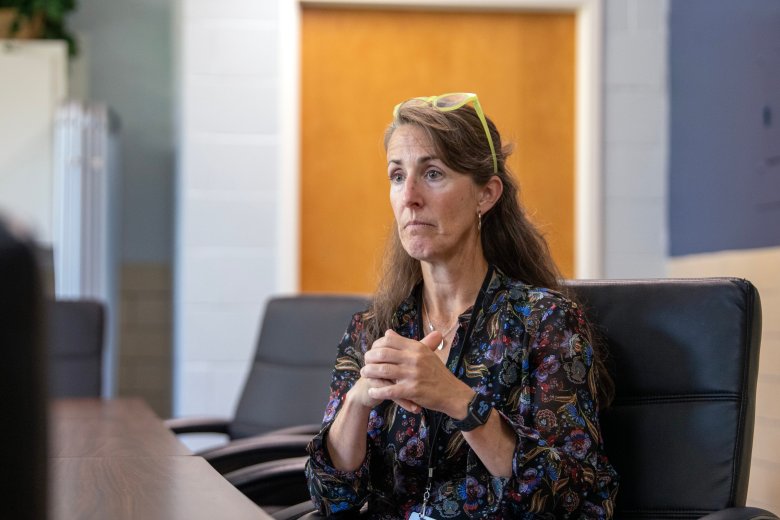Bangor has initiated a comprehensive case management program to address the city’s ongoing HIV outbreak, which has identified a total of 29 cases. Launched this month, the program is financed by approximately $550,000 from Bangor’s opioid settlement funds. It aims to provide vital services, including mental health care and transportation to medical appointments for those affected by the outbreak, which began in October 2023 and has seen an uptick in cases through the summer.
Jennifer Gunderman, director of Bangor Public Health and Community Services, emphasized the urgent need for this program. “We’re still dealing with an outbreak,” Gunderman stated. “Yet I think what we’re trying to do is build longer-term systems so that we don’t all get burned out.” The city has experienced Maine’s largest HIV outbreak in recent years, predominantly among individuals who have used injection drugs or faced homelessness within the year prior to their diagnosis, according to data from the Maine Center for Disease Control and Prevention. Prior to this outbreak, Penobscot County averaged just two new HIV infections annually.
Program Details and Community Impact
The new case management program will offer a range of supportive services, including mental health assistance, housing support, and treatment for substance use disorders. Gunderman noted that the program will employ two dedicated case managers and provide transportation to help residents access necessary services. This initiative marks the first time Bangor’s public health department has operated its own case management services.
Gunderman highlighted the importance of tailored programs that are easily accessible. “We have been engaging with this population for a very long time, even before this outbreak happened,” she explained. “So when the intensive case management program occurred, it was like saying to a person that we’ve known for a while: ‘Hey, we now have this other service that we can offer you.’”
Previously, case management services in Bangor were provided by the Regional Medical Center at Lubec, which recently ended its Northern Maine HIV Program, leaving around 140 individuals in five counties without support. This abrupt cessation of services occurred during a critical time, as many residents lost access to care amid the ongoing outbreak.
In response to this gap, MaineGeneral Health’s Horizon program announced on October 7 that it would expand its HIV and AIDS support services to include Penobscot County. This program is a long-time recipient of funding from the federal Ryan White Part C Early Intervention Services Program, which allocates resources for HIV prevention and care.
Jennifer Riggs, CEO of MaineGeneral’s community care division, stated that the Horizon program integrates outpatient medical services with vital support services for low-income and underserved populations. “Ensuring that these services and the funding for them remain available to individuals is essential to limit the negative effects of HIV and AIDS in Maine’s local community members,” Riggs remarked.
Broader Implications and Community Response
The Horizon program’s coverage area will expand from nine to 14 counties, and it has already begun transitioning some case management services while fostering relationships with local health organizations. Riggs mentioned that the program will collaborate with Bangor’s public health officials on various initiatives, including prevention, testing, and treatment coordination.
Bangor Public Health has also partnered with several community organizations to enhance HIV prevention services. These efforts include distributing clean needles and condoms, providing access to self-testing kits, and assisting individuals in obtaining PrEP, a medication that reduces the risk of HIV infection for high-risk populations.
Gunderman indicated that the true scale of the outbreak may exceed the currently reported 29 cases. Contributing factors include homelessness, outdoor living situations, and challenges related to substance use and mental health. She called for a statewide response, suggesting that the outbreak should serve as a “wake-up call” for other communities in Maine. “Bangor is not the only community that struggles with that,” she said. “So I think that statewide, there should be an increased awareness and increased testing.”
As Bangor moves forward with its new case management program, the focus will remain on providing critical support to those affected by the outbreak and addressing the broader public health implications for the region. The collaborative efforts of local organizations and health services will be crucial in combating this public health challenge.





































































